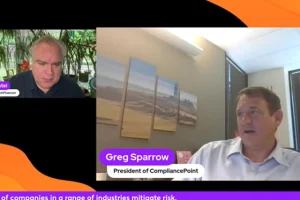FCC Issues New Rules for Prerecorded Messages to Landlines
On December 30, 2020, the Federal Communications Commission (FCC) released new rules that changed a long-held exemption for sending informational prerecorded messages to residential landline numbers. Previously, informational calls using an artificial or prerecorded voice were exempt from consent requirements under the Telephone Consumer Protection Act (TCPA) if sent to a residential number, meaning the calls could be placed without first obtaining the consumer’s prior express consent.
However, with efforts in Congress to combat illegal robocalls through the bipartisan TRACED Act in 2019, the FCC was required to review content-based exemptions to the TCPA and issue new rules where necessary.
After reviewing all current exemptions, the FCC focused its rulemaking on creating new restrictions for placing non-telemarketing calls to residential landlines using prerecorded messages. The rules include the following restrictions for companies using these messages to reach individual consumers at their landline phone:
- No more than three (3) calls may be placed to a single phone number in a 30-day time period;
- Prerecorded message calls answered by a consumer are required to include an automated opt-out mechanism;
- Prerecorded or artificial voicemail messages must include a valid phone number that allows the consumer to return the call and process an opt-out request.
The new rules for sending prerecorded messages without consent to landline phones will be effective six (6) months after publication in the Federal Register, with the earliest expected implementation date landing in mid-2021.
This rule change does not impact consent rules for placing automated informational calls to cellphones or telemarketing calls to consumers. Companies are still required to observe the following rules to remain in compliance with the TCPA:
- Ensure your company has prior express consent before placing automated informational calls to cellphone numbers, as well as for solicitous calls to landlines;
- Obtain prior express written consent prior to placing automated telemarketing calls to cellphones;
- Honor consumer requests to opt out of automated and solicitous calls and track this activity for compliance recordkeeping.
Unfortunately, the FCC created ambiguity in its rulemaking for what level of consent is required to safely place prerecorded informational message calls to landlines where before there had been an exemption. Its commentary discusses that the limits for placing these calls are not applicable where the caller has prior express consent; however, consent requirements are not addressed in the final rules that will be published.
CompliancePoint believes that by following the maximum number of call attempts and including the opt-out and callback number, informational prerecorded messages to landlines can be sent regardless of consent.
This FCC rulemaking and commentary is available here. Our team at CompliancePoint will continue to monitor the status of implementation and report on the effective date once the rules are published.
Consultants at CompliancePoint are available to assist your company in evaluating its compliance with this rule change, in addition to reviewing your overall strategy for complying with consumer contact and direct marketing regulations.
For more information or to request assistance, you can reach us by email at connect@compliancepoint.com
Finding a credible expert with the appropriate background, expertise, and credentials can be difficult. CompliancePoint is here to help.






